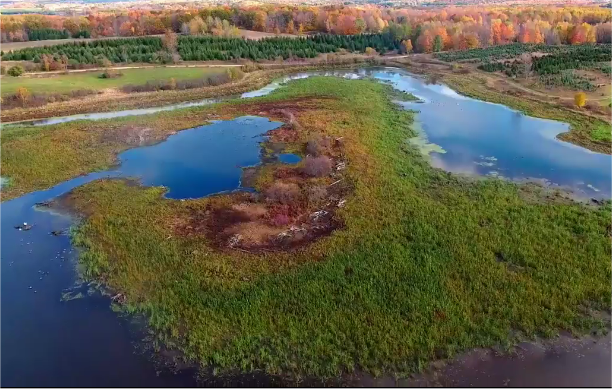June 5, 2018
Response to DEQ Issuing Potash Waste Well Permits
Our very busy Michigan Department of Environmental Quality has just granted Michigan
Potash Company, based in Colorado, the 3 waste-well permits needed to accompany
the 8 production well permits granted earlier, for a potash mine in Hersey, Michigan.
The operation in question is a mere 8 miles from where Nestle hopes to extract more
water from Evart. The potash mine, once in operation will draw nearly 2 million gallons
of water per day from a depth of only 215 feet. It will dwarf Nestle’s water use and do
even more damage to sensitive wetlands, private wells, and the Muskegon River
watershed than Nestle’s operation. Naturally Michigan Citizens for Water Conservation
has opposed these permits from the start in support of its members and the entire
watershed community.
It’s always disappointing when the DEQ rams through their permits, but never
unexpected. They don’t deny waste-well permits or large water extractions. And the
process they follow is predictable: First, all information is withheld from the public for as
long as possible (nine months in this case). If, and when, they do release some
information, it’s done a few days before holding a public hearing and then only after
public pressure to have a hearing.
It’s not yet clear-sailing for Michigan Potash Company. They still require several more
permits. We have no doubt that the DEQ will rubber-stamp these as well, but at each
step of the way, the company is forced to reveal a little more of their plans. This
happens in spite of the veil of secrecy they enjoy under Michigan’s Mineral Wells Act.
And every disclosure makes this project appear even more absurd.
As an example, take a look at the permit applications for these three waste-wells. You’ll
see that the wells (along with all of their high-pressure pipes, valves, tanks, etc) are to
be located on the edges of wetlands which are currently flowing directly into the Bullkill
Creek marsh and stream-system. Given the inferior site Michigan Potash has picked,
these disclosures only emphasize the lunacy of moving ahead with this boondoggle.
We anticipate endless financial roadblocks for this project, considering the poor site
choice. A financially-stressed company is apt to cut back on personnel and on
maintenance and monitoring activities. This increases the likelihood and severity of
accidents.
In the past, large and experienced companies walked away from doing exactly what Mr.
Pagano is proposing. But they weren’t starting from scratch, and they didn’t face most
the hurdles that Michigan Potash will: Lack of experience, Low potash prices, No rail-
access, Paying out of 5% of gross-sales in royalties, and environmental destruction.
And they weren’t coping with a crushing third-of-a-billion-dollar debt-burden!
Michigan Potash is structured as a chain of shell-companies with limited liability. This
means that, following a disastrous release of highly-concentrated and toxic brines into
area aquifers and surface-waters, the owners can simply wash their hands of the whole
sorry affair and leave local residents with a ruined environment and unusable wells.
The DEQ knows full-well that solution-mining ventures often end in bankruptcy, so
they’ve insured themselves against having to pay for the plugging of abandoned wells
by requiring a performance bond of $33,000 per well. They tell us, however, that it’s not
their responsibility to require similar protection for local residents. There are no required
performance bonds to handle the inevitable destruction of wetlands and the toxic
contamination or drying up of area wells. The nearby Cargill plant is currently purging
plumes from two brine spills and one diesel fuel plume, yet Michigan Potash, on a much
more vulnerable site, gets a pass in terms of responsibility for the inevitable spills it will
cause.
Michigan Citizens for Water Conservation will continue to provide information about this
disastrous project on our website, saveMIwater.org and we encourage all who will be
affected to protest to the DEQ and the DNR before the drilling starts. Contact us for
more detailed data, including videos and maps of the area or access them on the
website.
Ken Ford, MCWC Board Member
Also published on Medium.

